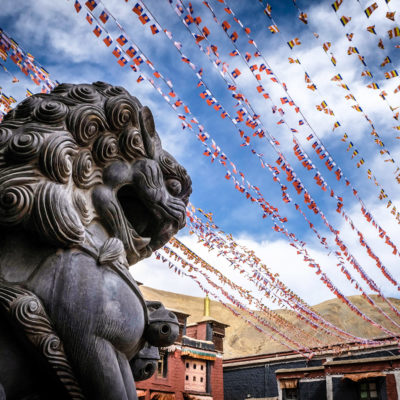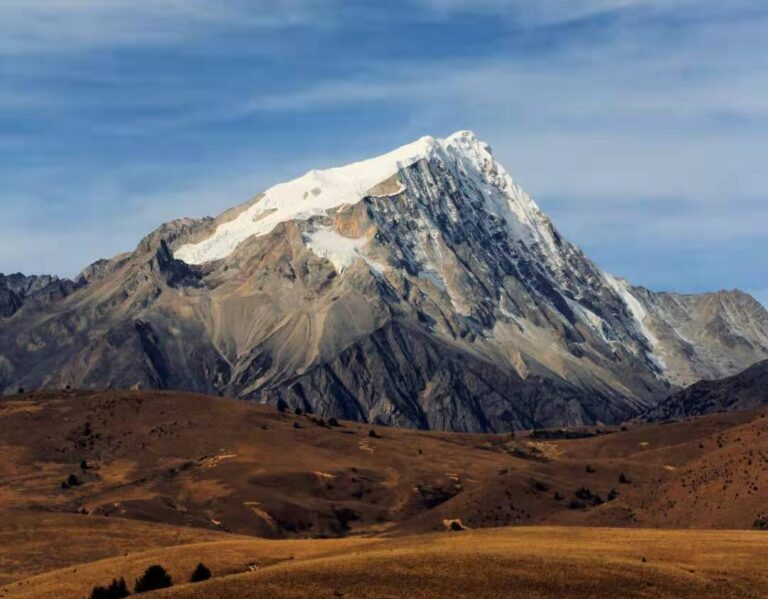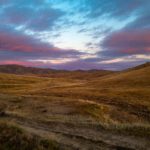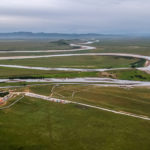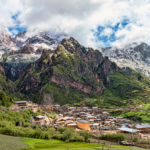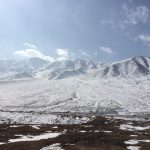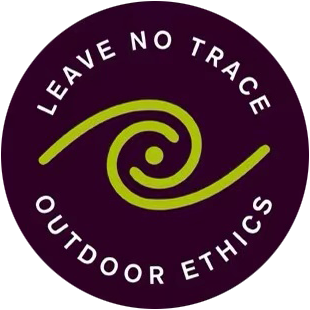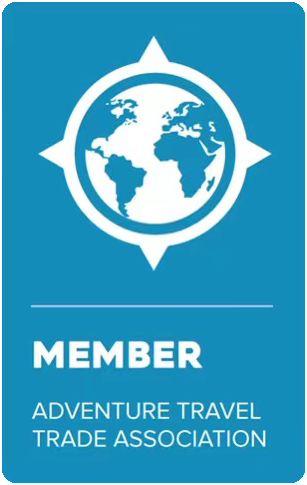Reinventing Tourism Companies in Western China
The Case of Elevated Trips, an interview
Dear Ben, thank you for this interview. It is a pleasure to know you. Please tell me more about your work in tourism in Western China.
Hello, my name is Ben Cubbage. I am the owner of Elevated Trips. I have lived in western China for over 10 years now and I love to share my passion for nature and culture with travelers in Qinghai, Gansu, and Sichuan Province.
You can see our website at:
You can see more about us and our work in ecotourism at:
https://www.elevatedtrips.com/about-us-ecotourism-in-tibet/
You can also see a little more on my Bio at:
https://www.elevatedtrips.com/trip-leader/
What is your role in the company?
I am the founder and lead guide of Elevated Trips.
What are your services offered in Western China?
We offer unique ecotourism experiences that are off the beaten track on the Tibetan Plateau that benefit the local communities!
Our tours and treks are culturally immersive and full of wonder and life and focus on small group sizes and authentic experiences.
We generally specialize in:
- Foreigners living in China
- International Schools in Asia
- Team building and leadership development
- Outdoor and experiential education
- Chinese looking for a new small group or western concept in travel
- Customized private tours
- Small group travel
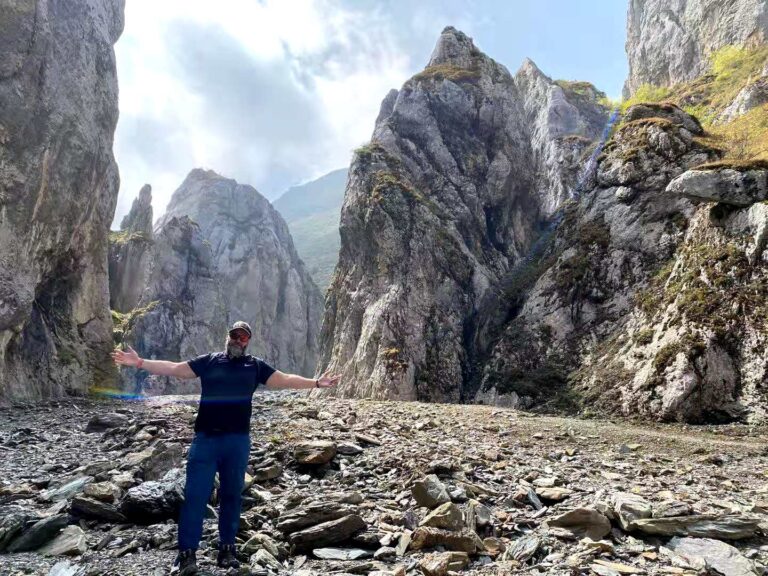
How did you as a foreigner end up in western China?
I have been a tour guide for over 20 years now. But I never expected to live in China. Here is a little more on my personal story and how I ended up in living in China.
On July 27, 2010, my wife and I flew into Beijing. I had never been to China before and I did not speak even one word of Chinese. Had you told me 3 years before that that I would be living in China, I would have never believed you. 3 years before that I was living in Africa.
But let me rewind a little bit to how we got to that space. My wife and I met in Ghana, West Africa in 2006 doing community development work to help the poor and undeveloped places of West Africa. There I taught organic agriculture and community development in the villages of Ghana and Liberia. Every day I would drive 1-2 hours into the African jungle to work with prisoners and HIV AIDS communities that had access to few resources and little money. These people largely functioned as exiles in their community and were some of the poorest members of their villages. Our goal was not only to help them have a way to grow crops and feed their families but to teach them that they had dignity and honor and purpose even though many of them did not have a high school education.
My wife and I finished our service in Africa and moved back to America to get married. We were married on my wife’s grandmother’s property in Texas on March 8, 2008. Immediately after our wedding, we took all of wedding money and set out on a 6 month honeymoon to walk the 4,000km Pacific Crest Trail from the border of Mexico to Canada. Every day for 180 days we walked 30km through the highest mountains and dry deserts of America and slept in a tent at night. Everything we owned was on our backs in a 30 pound backpack. We only had one set of clothes and we carried a tent, a sleeping bag, a camping stove, and all of our food in our backpacks It was a simple life and a life of adventure as we saw the most beautiful mountains of the west coast of America.
After our 6 month backpacking honeymoon, my wife and I knew we had a great passion for nature and travel and we wanted to work as outdoor guides to help people realize their potential in the wilderness. So in 2009 we joined an outdoor school where we learned skills in how to lead and plan trips in rock climbing, backpacking, mountaineering, caving, rappelling, and team building and ropes course management.
After our outdoor adventure school, my wife and I were driving across the country to apply for outdoor jobs. Unexpectedly on our journey, we met a friend who had a travel agency in Xining, China. He invited us to come work with him in Qinghai Province to learn about tourism and travel in western China. We had never thought about moving to China. I had probably never even said the word “China” and I knew nothing about the country. But every time we talked about it, we were excited to move away from our home country and start a new life in a wild place. Within two weeks, we had decided to move to Xining and after selling our car and leaving our jobs, we headed off to live in China for the first time.
Since that day on July 27, 2010, my wife and I have lived for 10 years in China. Through ecotourism I have gotten to integrate my love for the mountains and backpacking and my love for community development from when my wife and I met in Afrcia. Although sometimes we miss our home country, we love China and really feel like we were made to live here. We love the people, we love the food, and we like living in the mountains of Qinghai. We are so grateful for this opportunity and love to work and travel in western China.
Since we have lived in China we have traveled to many different places including the base camp of Mount Everest, Amnye Machen, the headwaters of the Yellow River and many other places. We enjoy seeing new places and cultures with our family and friends in China. In the last few years we have taken our passion for travel and started a small adventure travel business called Elevated Trips where we explore the culture and mountains of western China with small groups in authentic environments.
Xining is a remote place that few foreigners have ever heard of. Why would you choose to live there?
As far as cities, there is not as much development in Xining as there is in Shanghai or Beijing or Chongqing. Although it is the capital of Qinghai Province, there are only 2 million people in the capital and there are only 5.5 million people in the whole of Qinghai Province. That is a pretty small population considering that the land area of Qinghai is actually bigger than all of France and most of it has an altitude over 3,600 meters. Many Chinese people have never even really heard of the city and when they do think about it, they imagine the wild untamed west. In Xining we do not have a subway system, we do not have the Beijing opera, and we do not even have a McDonald’s yet. It was probably just 5 years ago that I stopped seeing donkey carts being pulled through the main streets of the city. So many people might think Xining is a little boring as it does not have the same options for international cuisine or night life as other tier 1 or tier 2 cities. In fact, there are only about 200 foreigners that live in Xining – and we all know each other from one shared WeChat group.
But the thing that I really love about Xining is the mountains and the wide open spaces. Within a 40 minute drive from downtown we can be on top of a 4,000 meter mountain that no foreigner has ever been to before. Many people refer to this province as 大美青海 – that means “big, beautiful Qinghai”. It really is like the Montana of China with open lands and high mountains and undiscovered alpine lakes. So the reason I live here is because I love the mountains and the freedom of nature. There is also great access to really interesting culture here. Among the many diverse cultures of western China there are Tibetans, Mongolians, and Hui and Salar Muslims here. And there are few places in the world where you can see so many cultures living right next to each other in relative harmony.
In Xining and Qinghai the pace of life is slower. People are not quite as busy. I like that the city fells cleaner and kinder than any other city I have every been to China. I also love the weather here. Most Chinese refer to Xining as “the summer capital” because it has very spring-like temperatures (usually around 20 degrees Celcius) while other people are sweltering and sweating in big humid coastal mega-cities. The skies here are blue and are not filled with pollution. The weather is mild in the summer and cold in the winter and Xining gets over 300 days of sunshine all year round.
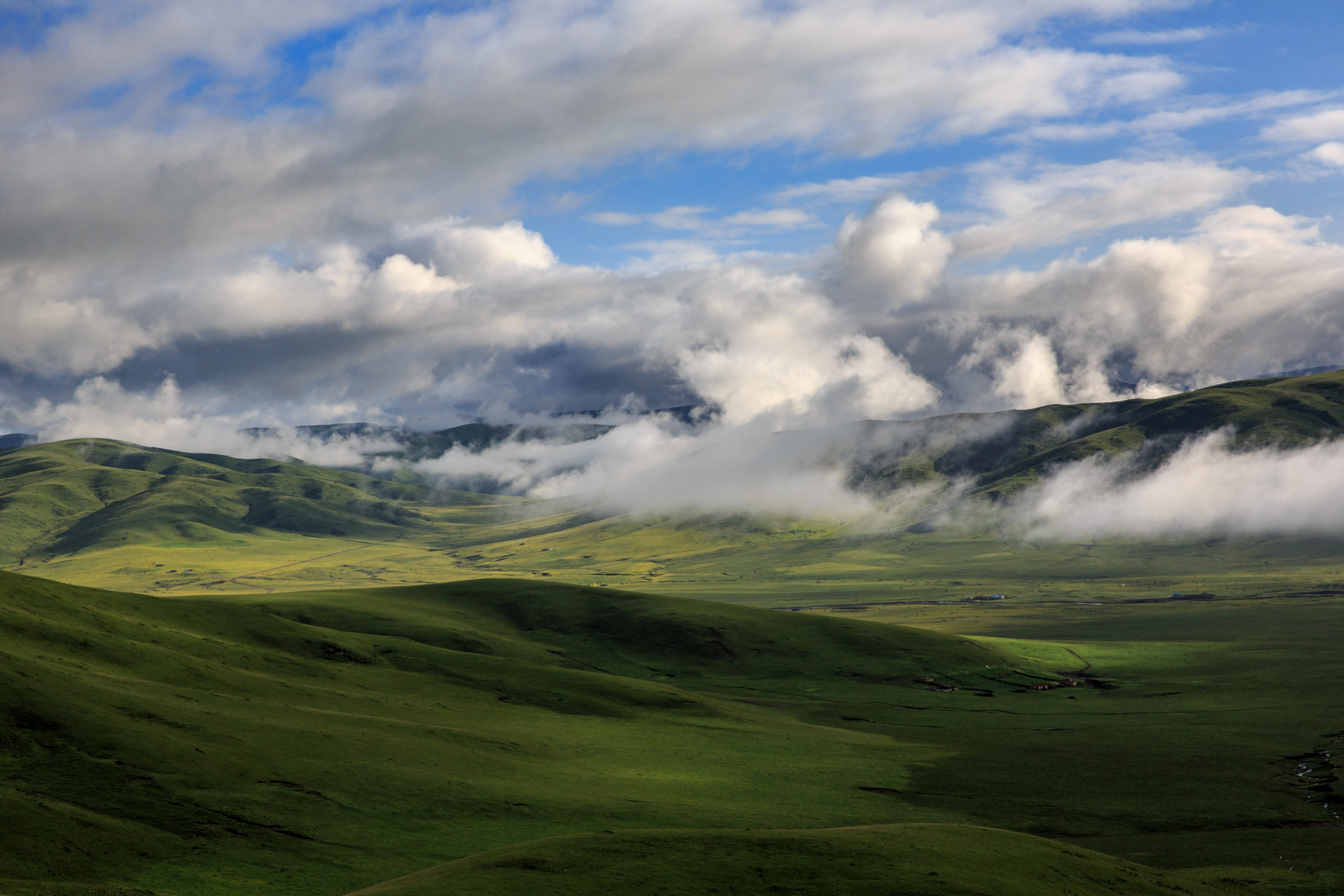
What is your business model?
Our business model is pretty simple. We use the best local Tibetan guides who have spent their lives as nomads in the mountains. These men and women know their home environments better than any outsider could and we are blessed to be a part of their culture and heritage. I have spent over 10 years traveling all over the Tibetan Plateau and getting to know these lively and colorful people and they have generously invited me into their homes, their lives, and their beautiful mountain communities. After falling in love with these wonderful nomadic people I decided I wanted to make it my life work to help preserve their customs and traditions while bringing value to their remote villages through the resources they already have: horses, hiking, mountains, culture, and craft.
We then work with these communities to create unique and culturally immersive trips that include monasteries, mountains, Tibetan art and architecture, ethnic foods and customs, and traditions and festivals. As a well-traveled foreigner, I have a pretty good idea of what foreigners are looking for in adventure travel. So I use these concepts to help tailor these experiences to the tastes and preferences of western travelers and to design travel itineraries that are both educational and engaging in Tibetan culture.
What are some of your most popular trips?
Here are some of our most popular tours
1.) Red Rocks and Monasteries
4 nights/ 5 days
https://www.elevatedtrips.com/tour/red-rocks-and-monasteries/
I think that your readers would love this itinerary. Kanbula National Park has some of the most beautiful red rock formations in all of China and is sometimes called “the Grand Canyon of China”. There are lots of opportunities to hike there amidst the red rocks and the canyons.
You can see the drone videos here:
2.) Prayers in the Plateau
7 nights/ 8 days
https://www.elevatedtrips.com/tour/prayers-in-the-plateau/
3.) The Headwaters of the Yellow River
9 nights/ 10 days
https://www.elevatedtrips.com/tour/the-headwaters-of-the-yellow-river/
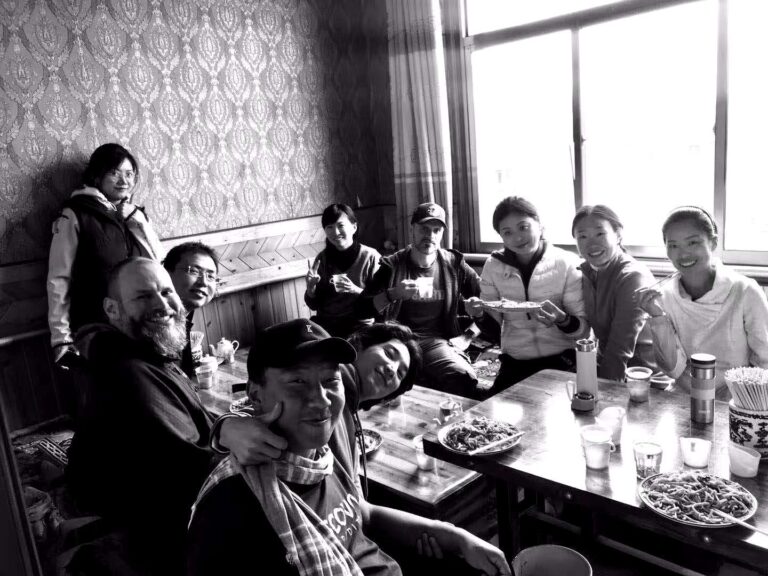
How has COVID-19 impacted your business?
From February 1, 2020 to July 15, 2020 we lost all of our business as the world was on lock down and no one was really traveling in China. Local hotels and national parks were all closed for business and most people were experiencing some form of quarantine or self-isolation. We had quite a few international trips planned for 2020 where foreign friends were coming in and we were supposed to guide them on Snow Leopard Journeys, Himalayan treks, and Tibetan cultural tours. It became pretty obvious by May 2020 that those trips were not going to run and that few to no foreigners were going to be able to enter China from abroad. It was almost impossible to get a flight into China and it was even harder to get a visa to enter China as a foreigner. During this time a lot of my friends who ran successful travel businesses lost all of their business and virtually went bankrupt overnight. Many tourism agencies lost millions of RMB in revenue because suddenly no one was traveling. All in all, the travel situation looked pretty bleak and guides I had known for years were turning to alternative forms of income, whether it was teaching English in local schools or selling yak butter candles on the side of the street for a few RMB each day to buy their family noodles.
Then after July 15 something very funny started to happen in Qinghai. After losing all of our business for 6 months, we started getting twice as many trip inquiries as we had ever gotten in any previous year. Foreigners began to realize that they would not be able to travel to Europe or America or Southeast Asia for the foreseeable future. People were locked in China and they knew that if they left they would probably be locked out for a year or more. Their travel options were now limited to just a handful of destinations in domestic travel. Rather than going to exotic beaches in Thailand or jungles in Borneo, foreigners living long term in China were traveling to Sanya, China’s crowded beach resort in Hainan Province.
In 2020 Qinghai Province only had a total of 18 cases of coronavirus in February and March and all of those 18 cases had recovered back to full health. This meant that Qinghai was now one of the safest places in all of China because it did not have the huge international and domestic flow of travel that places like Beijing or Wuhan were seeing. As the rest of the world spiraled into chaos and disorder, China took immediate control of its coronavirus situation and soon malls and buses and theaters were starting to open again and fewer and fewer people were wearing masks and life was virtually back to normal. By October Holiday, I picked up some friends in the Xining XNN airport and I saw more crowds arriving at baggage claim- both of Chinese and foreigners- than I had ever seen in 10 years of living in Xining. People were desperate to get out of their stuffy apartments into the fresh air and untouched nature of Qinghai. I think after such a hard and difficult year people were ready to get out and relax with friends and family.
As a result, while most tourism businesses have struggled in 2020, we have found that we are actually growing and expanding this year as more people start to look at alternative domestic destinations in western China.
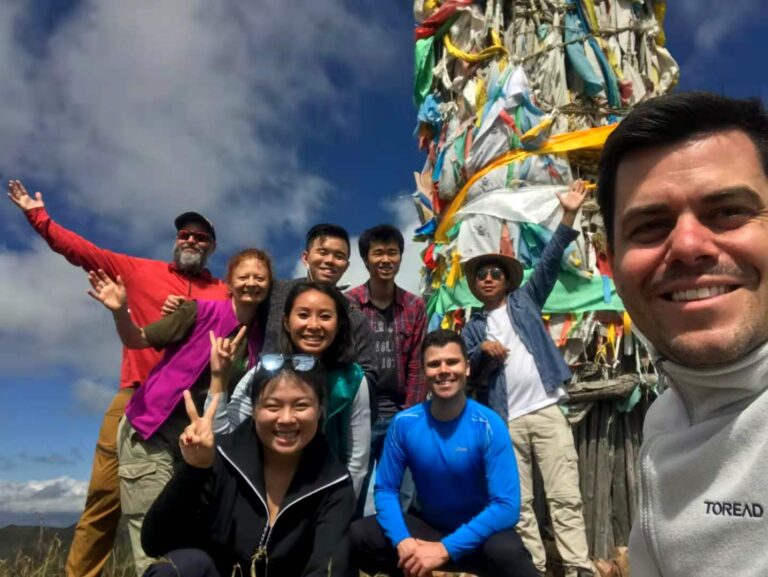
What are the short-term and medium-long term solutions that you are putting in place to overcome the COVID-19 crisis?
As far as working to overcome the COVID-19 crisis we are going to focus on working with Chinese and foreigners looking to travel domestically in China. We are developing special Christmas 2020 and Chinese New Year 2021 tours that will allow foreigners who are locked in the country to travel. One tour that we are most excited about is our Tibetan New Year Festival tour from February 18 to 28 where we will get to see the most important and holiest festivals and ritual dances in all of Amdo Tibet. We are also offering some special Snow Leopard Wildlife Photography trips and other trips in the Yushu area in southern Qinghai that capture the amazing landscapes of the source of the Three Rivers.
We are constantly in contact with hotels and national parks to stay up to date on the most recent travel regulations and openings. As of now most parks are open to foreign guests but Jiuzhaigou National Park is still closed and there are a few other destinations that remain hesitant to issue tickets or permits to foreigners amidst the fears of coronavirus. We spend a lot of time on the phone with these areas and will keep our guests both informed and safe as COVID-19 transforms the travel industry.
What are the strengths of Western China tourism market in your opinion?
One thing I really love about western China is that you do not need all the travel permits and official documents as you do in the Lhasa and Mount Everest region. Yet the Tibetan culture and the splendor of the mountains is just as present here as any place along the Friendship Highway. So it is all the wonder and mystery of 600 year old Buddhist temples without the regulation of permits and papers.
Overall, western China is still a very undeveloped destination, especially in Qinghai Province. In Qinghai, other than Qinghai Lake and Taer Temple, most places in have never seen tourists. This is a strength because it means that there are many Tibetan areas which are still very authentic in culture and have not been ruined by greed or the trash and waste that comes with mass tourism. While most popular Chinese tourist destinations like Guilin, the Great Wall, and Lijiang have been totally paved over and filled with tour bus parking lots and noisy crowds, Qinghai remains one of the last, untouched frontiers. Here there are no paved walkways for Chinese women in fur coats in high heels. There are no cable cars up to the top of the mountain (although I am sure in a few years we will start to see this). This is a great place for those adventurous travelers and trekkers who are wiling to stray into a China that is unlike anything you will find on the east coast.
The opportunities for engaging and unique trips, especially those in the adventure industry, are limitless here from wildlife photography tours to winter snowshoe journeys to rafting down the Mekong River. This area could easily offer as many beautiful treks and journeys as Nepal or Bhutan or Thailand. As a source of three of the major rivers in China, the Mekong River, the Yangzte River, and the Yellow River, Qinghai is an important ecological home for many unique species and a good deal of the world’s water supply. But only time will tell if in 10 years big business over runs the industry with careless budget tourists that are only traveling to take a selfie or if the people traveling here actually have a desire to preserve and learn about the culture they are traveling through. Western China is open with possibilities and in many ways we are at the crossroads where we get to decide if we will repeat the same parasitic model of tourism that is endemic to most international group travel or if we will choose a new road that is both more ethical and more sustainable to live at harmony with, rather than fighting against, the natural environment around us.
What are the weaknesses of Western China tourism market in your opinion?
On the other side of the coin, the lack of tourism development in Qinghai means that if you are a luxury traveler you are going to have fewer opportunities to find 5 star hotels and Michelin rated chefs that you might find in bigger cities. For those used to the comfort and opulence of the Shanghai hotel Sunday brunch and the suit and tie Christmas Galas, a journey through the mountains of Qinghai might not be the same as a vacation to the spotless swimming pools of the Hyatt hotel in Bangkok.
There are actually a few 5 star hotels in Xining and Lanzhou and Chengdu. But after you get out of those cities accommodations start to get simpler, albeit more original and authentic. Chinese travelers can travel to Zambia and experience a 5 star safari in glamping tents with wine and cheese and white linen napkins. There is an element there on those safaris that you could get up close with the wild and with nature while not losing out on any comfort. Qinghai has not yet integrated its raw, untamed beauty with the demand for luxury and comfort. So if you are traveling to Qinghai you may still have to be a bit flexible as most of the destinations here are still more off the beaten path. This, of course, is the greatest strength of Qinghai but also its greatest weakness.
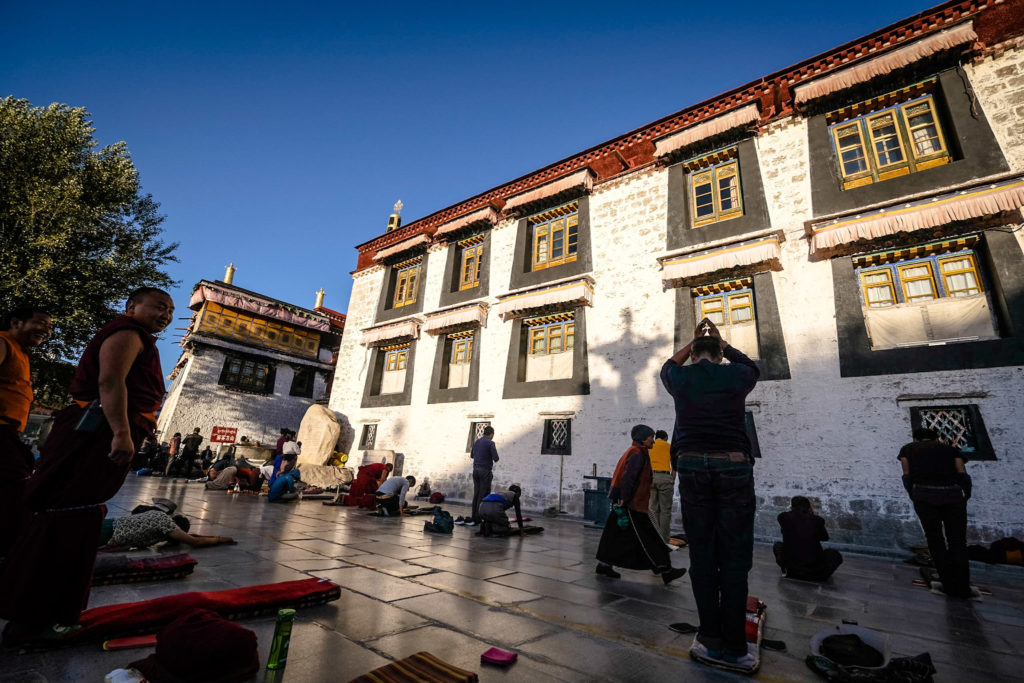
How do you support ecotourism and local community development?
Ecotourism is tourism that keeps money in the local communities while giving value and benefit to the environment and the culture. In order to promote environmentally and culturally ethical tourism we pride ourselves on practices that encourage:
- Conscientious, low-impact visitor behavior
- Sensitivity towards, and appreciation of, local cultures and biodiversity
- Support for local conservation efforts
- Sustainable benefits to local communities
- Local participation in decision-making
- Educational components for both the traveler and local communities
Elevated Trips uses local Tibetan guides, hotels, drivers and exists to support and empower communities.The money from your tour goes to support local Tibetan economies.
We are not a mass travel company who turns out tourist trips with a factory mindset. But we do care deeply about each participant as an individual as well as maximizing their understanding and place as a global citizen in the local culture and customs.
Ecotourism is defined by the International Ecotourism Society as “responsible travel to natural areas that conserves the environment, sustains the well-being of the local people, and involves interpretation and education.” It is our goal to walk out these three legs of ecotourism while providing meaningful, enriching, engaging experiences to our travelers.
You can see our recent 2020 blog on ecotourism initiatives and experience here
How else are your tours different from other large travel agencies?
We see ourselves as different from other large travel agencies in at least 3 ways:
1.) Elevated Service
Our commitment to service comes from significant travel experience all across Asia and Tibet. As the founder of Elevated Trips I have over 12,000 km of trail-tested trekking experience and 15 years as a professional guide with 7 of those years guiding in western China. Most the local guides we employ have 10-20 years of guiding experience and are considered the best, most in-demand guides in the business.
We work with only the highest quality local guides to give you the best possible ecotourism experience. Elevated Trips employs the best Tibetan guides who are fluent in English and offer the best customer experience. This means that our guides don’t just repeat a canned line on a tour bus microphone. Our guides go above and beyond the normal to give you the highest possible quality experience. It is often a highlight for many of our customers to get to know the guides personally and to learn first hand from them about their own lives and stories. The guides we work with are highly sought after because they get what it takes to make the customer feel understood and go the extra mile to serve you.
We pride ourselves on being on the forefront of safety and peace of mind. Ben has also participated in 450 hours of wilderness specific first responder training.This is the industry standard that NOLS, REI, the world’s best wilderness guide services require in their guides.
And we always love to hear from our travelers. We want to hear what excites you about visiting this unique land. Being good listeners is at the heart of our old school approach to service because we want to fill your travels with rich experiences and personal touches. We are happy to tailor-make your experience to suit your needs and love seeing the glow of a smile light up when people feel cared for and really get something beyond what they were hoping for.
2.) Elevated Experience through Ecotourism
The selfie culture has become a bit ridiculous. Traveling is so much more than just taking a photo to impress your friends.
We want you to come back from our trips changed on the inside with broader minds, that are educated and enlightened. We don’t settle for riding a bus in a group tour and stopping at the touristy, commercialize sites.
Our tours and treks are culturally immersive and full of wonder and life and even delightful spontaneous moments that can’t be squarely placed in a brochure. By immersing yourself in culture you begin to admire it in a new way that you can not as a mere spectator.
We get off the beaten path where few foreigners have ever roamed.
Imagine sitting outside a Tibetan tent on the high plateau watching your nomad host make butter tea in a handmade wooden churn. His wife is weaving coarse dark yak wool on a loom that has been in her family for generations. From the corner of your eye you spot the herd of yaks coming back home for the night to make their bed in the grass. A Tibetan nomad offers you a steaming mug of tea as you look up at the brilliant stars. If you want to the see the world through the window of an air conditioned tour bus, Elevated trips is not for you. If you want to experience life through the eyes of a Tibetan living on the roof of the world, we will take you there in a way no one else can.
At Elevated trips we love to live and travel authentically immersed in a culture, rather just looking at it from the outside like tourists looking at animals in a zoo through the bars.
3.) Elevated Landscape
And, of course, our trips are at high altitude. The average elevation of the Tibetan Plateau is 14,000 feet. People think this makes the trip dangerous or just for the elite mountaineer. But with proper, gradual acclimatization you will be able to experience an environment that has few parallels in the modern world: one of the last wild remote places on earth. From the diversity of wildlife that includes yaks marmots, pika, wild antelope, black necked cranes, and wild asses at high altitude to the alpine tundra, the ecosystem is unique. The lifestyle of nomads that live on these high plains in difficult conditions is equally as interesting and shows a fortitude and adaptability that is truly inspiring.
How can people get in touch with you or find out more information?
Ben Cubbage
Elevated Trips
YouTube: bit.ly/youtube_tibet
Wechat: thecubbages
Instagram: elevated_trips
Facebook: Elevated Trips
